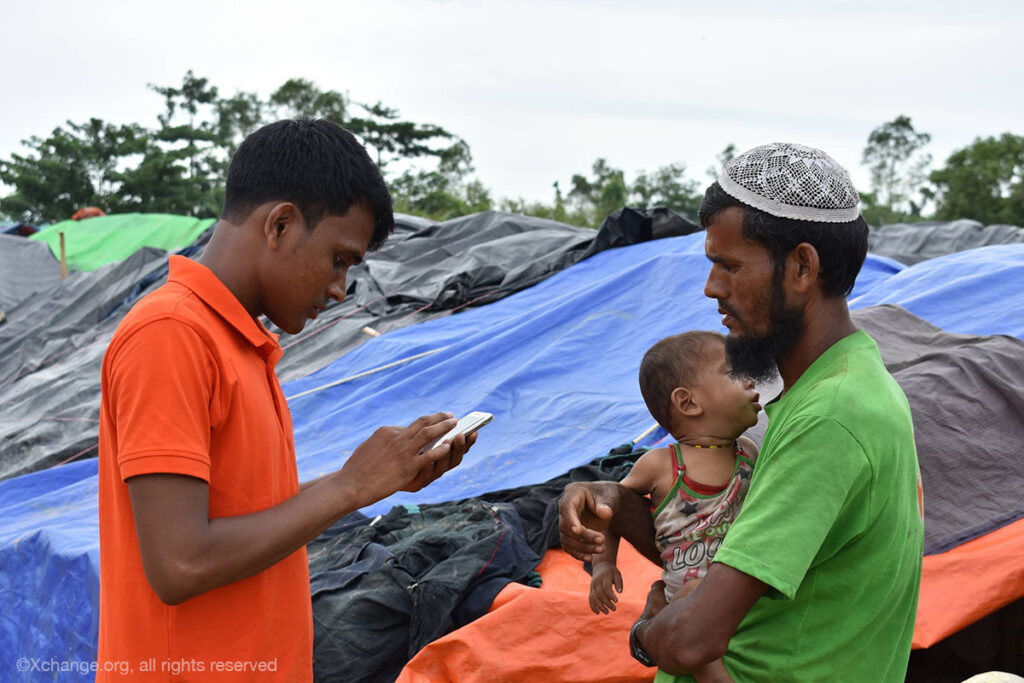“It was night when the military entered my village. I was at home when they started searching for people, particularly young girls. When they found them, they raped them. They also kidnapped people, some were beaten up badly and others shot and killed. It was indiscriminate. I fled from my home without my child or my husband. Many people died in that raid and more were lost. We know nothing of what happened to them.”
This is the voice of a Rohingya refugee recalling the night when the military raided her village in Myanmar. Her story is one of over a thousand recently recorded by the migration research and data analysis portal Xchange.org, in their new Rohingya Survey 2017.
Since 25th August 2017, over half a million Rohingya refugees from Rakhine State, in northwestern Myanmar, have fled their homes for neighbouring Bangladesh.
Those who have arrived in Bangladesh describe horrific crimes committed against them and their families. These range from the burning of entire villages and raping of women and girls to the murder of infants and mass shooting of civilians.
The Xchange Rohingya Survey 2017 brings together a dedicated field team to collect data from new Rohingya settlements in Bangladesh, with the aim of documenting incidents and abuses against the Muslim minority group to better understand the dynamics of their exodus.
Their findings reveal the scope and detail of the events that have unfolded since late August. Through interviews with survivors, they have been able to shed light on the perpetrators and victims, the journeys taken and the locations where incidents have occurred across Rakhine State. Their aim is to document this crisis in order to help others understand it and ensure that incidents are not forgotten.
The Rohingya Survey 2017 was published on 15th December 2017, and hosted on the Xchange.org website.
We would like to share their findings with the international media and organisations interested in their research and analysis. You can also take a look at the work they have previously produced on the Rohingya crisis, as well as their research on Mediterranean migration.
You can read the full survey here.
For more information, please contact [email protected].

